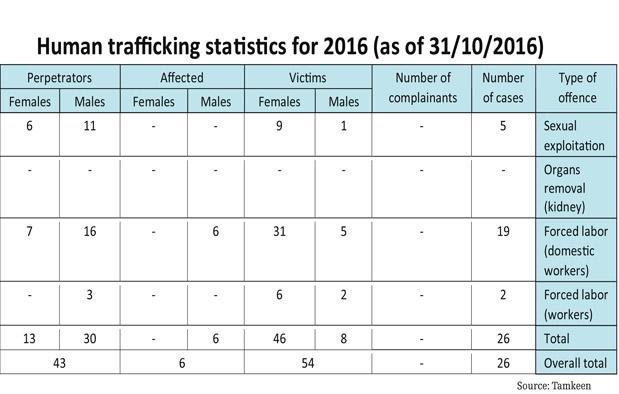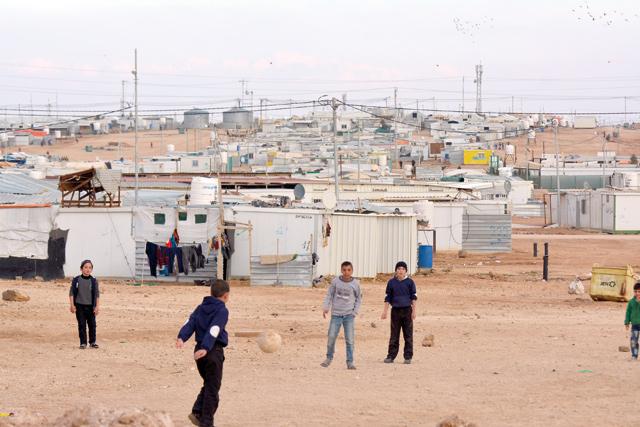You are here
Women refugees fight for survival, protection
By Maria Weldali - Jan 24,2021 - Last updated at Jan 24,2021
AMMAN — Struggles of refugee women have built their resilience to current and future challenges.
“Everything is fine. All is well. Thank God,” those were the first words of 38-years-old Syrian refugee Nedaa who lives in one of Amman’s poorest neighbourhoods.
Domestic abuse
Nedaa (not her real name) in the presence of her children told The Jordan Times at first that the reason why she is not in one of the refugee camps in Jordan is because of her health issues and complications of a solitary kidney.
However, out of the view of her children, she narrated her struggles.
“I am a fool that I believed my husband’s words,” Nedaa, said, adding that when she first came to Jordan in 2015 with her six children, she went to Azraq refugee camp, but her husband who was already working in Amman told her to come and live with him and his family.
In the camp, Nedaa used to receive income from the refugee agency. The amount granted for each person was JD23, but since she went to live with her husband, he has been the only one allowed to receive the money and everything since then has been under his name.
“He is abusive. He always threatens to take my children, leaving me hand-tied and subjected to physical violence of all types,” she alleged.
Asylum is harder on women than it is on men, according to Nedaa, who still fights to get a divorce.
Plea for survival
Smoud (not her real name) is a 35-year-old Yemeni mother of four, whose youth was claimed by poverty, war and terror.
She said that she and her family cannot even remember “the feeling of warmth and stability, and view future developments with trepidation”.
Smoud struggles for survival in a small shop where she goes every couple of days to buy basic food for her family.
This shop located in one of Amman’s poorest areas, sells food and toiletries for people in need. The needy go there and shop to a specific amount, the name of the buyer, phone number and the amount spent is added to the notebook containing the value of the outstanding debt, then the area’s benefactor comes and pays the debt in installments.
“I call whoever I know in Amman just to give me some bread and tea, go to bakeries or ask restaurants to give me their leftovers, I have nothing and the money we get from the refugees agency is JD130, of which JD100 is rent,” Smoud said.
Adding that in the cold, she and her four kids huddle together under one blanket to warm each other.
The area’s benefactor who preferred to remain anonymous told The Jordan Times that the value of the outstanding debt is JD1,300, but many times it reached JD5,000.
Nedaa faces extra challenges due to taking care of her 30-year-old sister who has a mental health condition.
Bearing scars of conflict
Sudanese refugee Majd (not her real name) who fled Darfur with her husband two weeks ago told The Jordan Times that she was “raped by smugglers in Khartoum”, while she was separated from her husband due to the attacks and conflicts between sects.
“Currently I am in need of sustainable protection,” she said.
“I cannot change what happened in the past, the wounds and terror I faced is indescribable, but my focus now is where will I sleep and what will I eat and if we could survive,” she said
Majd who is only 28 years old, said that every day she sees women fight for getting some help, mothers stand for hours in front of shops and bakeries to bring back home a piece of bread.
“Women are true fighters,” she noted.
Related Articles
AMMAN — Fadwa (not her real name) was shopping at a mall in Amman four years ago, when she felt tired and sat on the sidewalk opposite the m
AMMAN — Fadwa (not her real name) was shopping at a mall in Amman four years ago, when she felt tired and sat on the sidewalk opposite
AMMAN — A caravan of approximately 12 square metres is what Shawkat, his wife and his three children have been calling home for the past eig


















